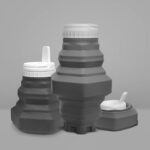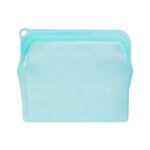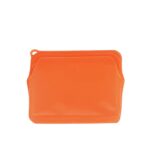Everyone is now more environmentally conscious due to the significant change in the globe’s temperature. As most people now feel the effects of global warming, there is more effort on everyone’s end to live a more sustainable life. One aspect that more people are making more effort with is their use of plastic, especially plastic bottles. If you have not made the switch yet, keep reading below to learn more about the impact of reusable water bottles.
How Are Plastic Bottles Harmful to the Environment?
Plastic bottles are typically made from petroleum-based polymers derived from fossil fuels. The production of these polymers requires large amounts of energy and releases harmful greenhouse gasses into the atmosphere.
The decomposition of plastic bottles releases harmful chemicals into the environment, including toxins that can contaminate soil and water. These chemicals can then be taken up by plants and animals and eventually end up in the human food chain.
In addition to the environmental damage caused by their production and decomposition, plastic bottles can also harm wildlife. Animals can become entangled in discarded bottles or mistake them for food, leading to injury or even death. All these factors make it clear that plastic bottles harm the environment.
To reduce the impact of these bottles, we can recycle them, reuse them, or switch to alternatives such as glass or metal bottles.
Are Reusable Water Bottles Better than Plastic Bottles?
Most people know the benefits of using reusable water bottles instead of disposable plastic bottles. Reusable water bottles are durable materials that can be used repeatedly, saving money and reducing waste. But are they better for the environment than plastic bottles? The answer is yes and no—it depends on how you use them and what type of reusable water bottle you use.
If you use a reusable water bottle made of plastic, it will eventually end up in a landfill where it will take hundreds of years to decompose.
What Happens to Plastic Bottles When Thrown Away?
Most people don’t think twice about throwing away a plastic water bottle. But what happens to that bottle after it’s been disposed of? Unfortunately, not much. Out of 50 billion bottles, only 38% are recycled. The rest end up in landfills that can take up to 1,000 years to decompose.
When plastic water bottles are thrown away, they end up in landfills, which can take up to 1,000 years to decompose. In the meantime, the plastic bottles leach chemicals into the ground, contaminating the soil and water. And if that’s not bad enough, the bottles also attract animals who mistake them for food. Animals who eat plastic can suffer from malnutrition and blockages in their digestive systems.
Conclusion
There are many reasons why you should use recycled water bottles. They are suitable for the environment, they are often cheaper than buying new bottles, and they can help you stay hydrated. If you are looking for a way to reduce your impact on the environment, using recycled water bottles is a great option.
Looking to go zero waste? You can do so with our products at Ethicl. When creating our products, we have nothing but you and the environment in our mind—which is why our collapsible, silicone water bottles are good for the environment while also allowing you convenience. Shop from our products at Ethicl today!








